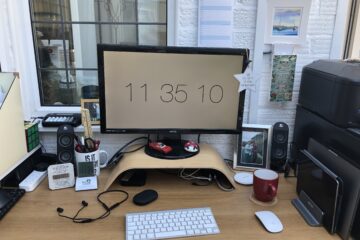During the period of Covid-19 and the massive impacts on businesses all across the UK, some of our contacts, clients, suppliers, friends and acquaintances have been made redundant or lost jobs for other reasons and for some of them it has been a significant amount of time since they were last in the job market.
We have helped a number of them, assisting in crafting honest CVs which are informative about character as well as experience and qualifications, but there are a number of other elements to a good job search which can help.
It seemed sensible to stick them all here so that anyone else in a similar position can help themselves to the knowledge and experience which has informed these points. All of us at ConsultART have been on the job market at one time or another, made horrifying mistakes, seen great success and generally been humans!
This advice will hopefully be useful, if not in itself by provoking thoughts of your own. If you think there’s anything really critical which we’ve missed please drop us a line by email and we’ll add (and credit you in the item!)
Start the hunt…
So, here are some things for you to do:
- Update your LinkedIn profile! This is almost literally your shop window for professional colleagues and hiring managers, and it may be some time since you last looked at it.
- Ask your contacts for a recommendation on LinkedIn. This helps potential hirers to see that you are not just ‘bigging yourself up’ and that others think highly of you. Half a dozen recommendations can give a balanced picture of you as a character as well as a worker.
- Look at major employers in your area. Work out a realistic commuting range and see who operates within this area. Check them out on Glassdoor to get an idea of their integrity, what it’s like to work there and see if there’s anyone you already know who works for them or has done in the past.
- Read regional publications like local newspapers. These often tell you which businesses are expanding, may have won a large order or the opposite. You may not want to join a company which is in danger of folding, but you certainly want to be talking to businesses which are successful.
- Look for things like ‘Investor In People‘ certification. These often show businesses which care highly about their employees.
- Be Brave! Some people do not like a personal letter or email introducing someone who wants to work at their organisation. Others may be about to look for someone just like you!
- If you don’t ask, you don’t get…
What about me?
If you’re in a position where you don’t know what you want to do next, it’s well worth taking the time to consider yourself and what makes you tick:
- Do you love travelling? Or are you a homebody?
- Mon-Fri 9-5 or shiftwork flexibility?
- Standard place of work, or working from home?
- What drives you mad about your current role?
- What gets you out of bed in the morning?
As an example, we became consultants because we realised that we enjoy travelling, like the flexibility of periods of intensity combined with periods of rest, enjoy working from home but also enjoy a good office environment. We also were really (really) irritated by things which could be done better, and found it easy to get up early when we were in roles which allowed us to help our teams to improve things.
You may be the complete opposite, but either way you begin to know what it is that you want from a future work opportunity.
Finally, ask yourself this question and think very carefully about the answer:
What does my ideal work day look like?
Mark Sheldon
Not just the work part, but where do you live, what sort of people are you working with, how do you travel to work, what are your key tasks.
Credits
This article was prepared with input from Mark Sheldon and Tamsin Martle, who are both (separately) excellent consultants in their own right.
